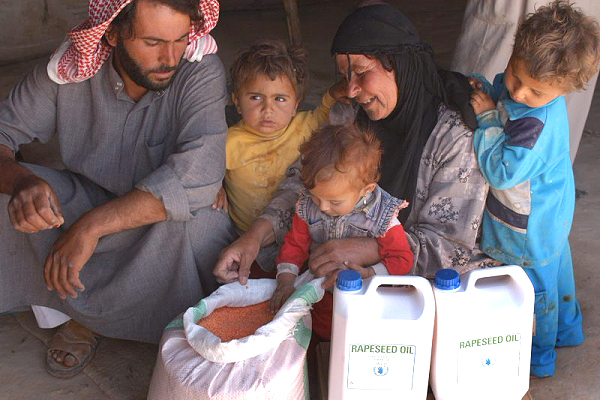“Child labour is a serious issue in Syria and the government, UNICEF [UN Children’s Fund] and the ILO [International Labour Organization] all look at it as an issue of concern,” said Sherazade Boualia, UNICEF country representative.
UN special rapporteur Olivier de Schutter warned in September that drought was forcing people into “extreme poverty” - the main cause of child labour. He said 1.3 million Syrians were affected, especially small-scale farmers.
“The major factor is a child’s need to contribute to the family economy,” said Boualia, “Other factors include tradition and the education system.”
Syria has signed the ILO conventions on child labour and has compulsory education until age 15. But until now, few practical measures were in place, such as preventing school drop-outs, Boualia said.
According to the ILO, globally 215 million children are engaged in child labour - a figure that has decreased since 2006. But in Syria and the Middle East region as a whole, statistics on child labour are patchy.
A UNICEF study in 2006 found 4 percent of children aged 5-14 in Syria worked, but that figure is likely to have increased, say experts. Additionally, the presence of impoverished Iraqi refugees has added to the pool of working children.
Set against the short-term financial benefits for the families of having a child earning a wage, however small, are the long-term implications for the child, and country.
“When a child's work is a substitute for their education, it takes away from their ability to do well,” Charita Castro, a child labour expert at George Washington University in the USA, told IRIN. “There are small studies linking child labour to reduced earning potential and GDP. If a country doesn't educate its citizens, it misses out on a productive workforce.”
Response
The Syrian government and UN agencies are responding with workshops, studies to collect data, and programmes to keep children in school. In the next two months the ILO will publish a study on the worst forms of child labour; UNICEF is working to improve teaching, school buildings and early childhood development.
“Solutions have to make sure the children not working have an overall, known benefit for the family, or implement measures such as conditional cash benefits [to encourage keeping children in class],” said Castro. “In the Middle East the dependency burden of the youth bulge makes it harder to tackle.”
Ultimately, poverty needs to be addressed.
“Countries that have significantly reduced child labour have also tackled poverty in a decisive way,” said Farah Dakhlallah, spokesperson for the ILO Regional Office for Arab States. “Governments can effectively tackle child labour by tackling family poverty, ensuring that adults have decent jobs and that children receive a good quality education.”
sb/oa/cb
This article was produced by IRIN News while it was part of the United Nations Office for the Coordination of Humanitarian Affairs. Please send queries on copyright or liability to the UN. For more information: https://shop.un.org/rights-permissions





